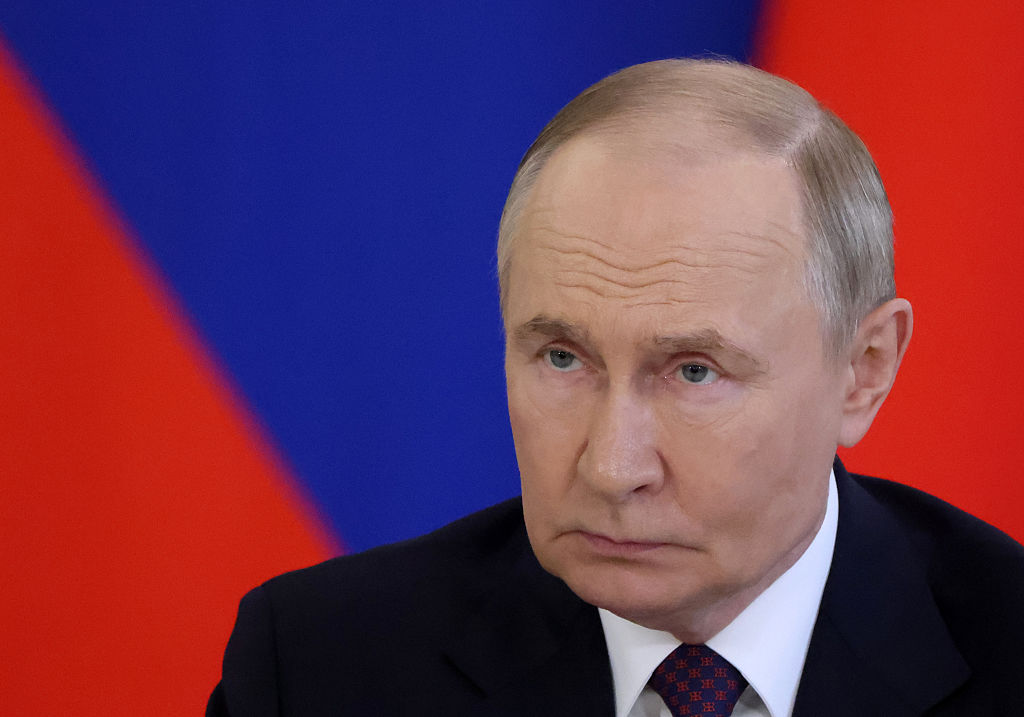Judging modern events using the moral framework of the Second World War is rather like using a Chopin nocturne to measure the speed of light. It is meaningless save in one respect: It gives those in government who use such fatuous arguments a bankable moral capital, a vital rhetorical weapon against government critics, especially when the income and pension of those using the weapon are assured and inflation-proof. Usually, both are. Moral capital invariably wins arguments regardless of either logic or evidence. Ker-ching!
Austrian officials were clearly banking moral capital when they declared that any Austrian-resident Croatian who had attended the concert of the Croat nationalist rock singer Marko Perković Thompson in Zagreb and who then used forbidden icons or illegal terms about the concert on social media would be fined up to €10,000. And yes, they really did mean “forbidden icons” and “illegal terms”, about a concert outside Austria, because banking moral capital is how these illiberal, smug hardcore-liberals govern. Label something Nazi and condemn it: More moral capital in the bank. Ker-ching!
Austrian authorities proclaim that Thompson’s use of the Croat slogan Za Dem Spremni invokes the spirit of the Ustaše, the fascist Catholic Croat movement that allied with the Nazis. Except, Za Dem Spremni in essence means “Guard our homeland”, and having reported from that front in 1991-93, I sympathise with many of Thompson’s sentiments. The Croat people were defending themselves and their culture from a well-armed imperialist state led by a war-criminal. One such patriot was Marko Perković Thompson, so-called because he favoured an old Thompson sub-machine gun, left over from the Second World War.
As it happens, during trench-fighting on the outskirts of Dubrovnik in 1991, amongst a crowd of Croat soldiers using their AK-47s against Serb invaders, I saw one who was firing a Thompson. Could that have been him? Hmmm. Anyway, after I had managed to withdraw from the front, I saw a soldier trying to hitch a lift. I obliged, less out of goodness than because he would be my safe passage through any Croat checkpoints. His AK rifle was draped in rosary beads, and on its butt was a portrait-icon of the Virgin Mary.
“You fight for her?” I asked.
“Of course.”
“Why are you going to Split?”
“To f*** my girlfriend.”
“Do you think she would approve?” I said, nodding at the AK.
“Of course. She would not want me to die unhappy.”
Which suggests that imagery and icons can have different meanings at different times to different people, and banning such things has little utility. This applies to all sides of the Balkan War: Bosniaks also had their totems, as did the Serbs, and making simple outright bans on any symbolism or slogans today is the hallmark of totalitarian ideologues, a species many of us thought had gone for ever. But now they are back, and in Austria have invoked Hitler and the usual tropes of anti-Semitism as a reason for banning anything, though on these grounds they would have banned perhaps the funniest film ever made, The Producers.
Perhaps it’s not surprising that Official Austria leads the way in such sanctimonious censoriousness, also known as “denial”. That is a logical (if dishonest) way of coping with some uncomfortable truths, for though a disproportionate number of Nazi war criminals were Austrian, including of course Hitler, Austria has nonetheless portrayed itself as a victim of Nazism. Admittedly, it is sometimes difficult to state which Nazis were “Austrian” or “German”, because there was so much back-and-forth movement, as with Eichmann’s family. But there is no doubt whatever over beasts such as Seyss-Inquart, Kaltenbrunner, Eigrubber and Meyszner, Eidelweiss-Nazis every one of them, who all (deservedly) got Pierrepoint’s noose. Slowly, one hopes.
But the heart of the matter is neither Austrian nor Croat, but the emergence across the Western world of a new ruling caste of self-appointed censors. What unites these despots is their post-Christianity, their loathing of patriotism, motherhood and national identity, and their belief in a new international order: Not Leninism but Lennonism. This infuses intellectual custard with shards of glass, rootlessness with venom and dogmatic pseudo-tolerance with an authorised hatred. Lennonism’s watch cry is Imagine, with its fluted Imagine no possessions, it’s easy if you try, written by a man whose possessions included five conjoined apartments in The Dakota in New York, the world’s most fashionable apartment-block, where his monthly service charges, all of forty-five years ago, amounted to $12,000. Ker-ching!
Lennon’s disciples are now everywhere: In parliaments, NGOs, equality commissions, local councils and newsrooms. They are benign and kindly, save when they “detect” the unforgiveable vices of gender-discrimination, racism, misogyny, chauvinism and Islamophobia, whereupon they unleash their rabid attacks dogs upon such reactionary forces.
Happily or tragically, according to taste, such forces now abound both inside the EU and outside. In Italy, Germany and France, they defend their homeland against Lennonist-authorised mass immigration. In England’s second city Birmingham, patriots have recently been raising the Union flag over countless streets, which their own Lennonist city council – naturally – has denounced as “dangerous”. A Britain-wide movement (Operation “Raising the Flag”) for restoring the Union flag of Britain, and the St George’s flag of England, to their rightful place in British life has, equally naturally, been condemned as far-right by the hardcore-liberal Observer newspaper. Last summer, the British Home Secretary Yvette Cooper even instructed magistrates to imprison people accused of rioting after the mass-murder of some little girls by the son of Rwandan asylum seekers, a criminal breach of the inviolable constitutional wall between government ministers and the judiciary.
But regardless of the law and tradition, this was deemed “acceptable” by the hardcore-liberal establishment, because the offenders were deemed “far-right”, a term that includes those worthless souls who still cherish their historic identity, measured by creed, ethos and ethnos. So, patriots everywhere, from Ashbourne in Ireland to Zagreb in Croatia, sooner or later, will find they are facing the implacable hostility of judges who embody the chaste and platonic jurisprudence of the millionaire-guru of the Dakota, with his five interlinked apartments and a monthly service-charge – yes, way back in 1980 – of $12,000. Ker-ching!
Kevin Myers is an Irish journalist, author and broadcaster. He has reported on the wars in Northern Ireland, where he worked throughout the 1970s, Beirut and Bosnia.





Accursed crash: The two islands of Britain and Ireland have gone so terribly wrong